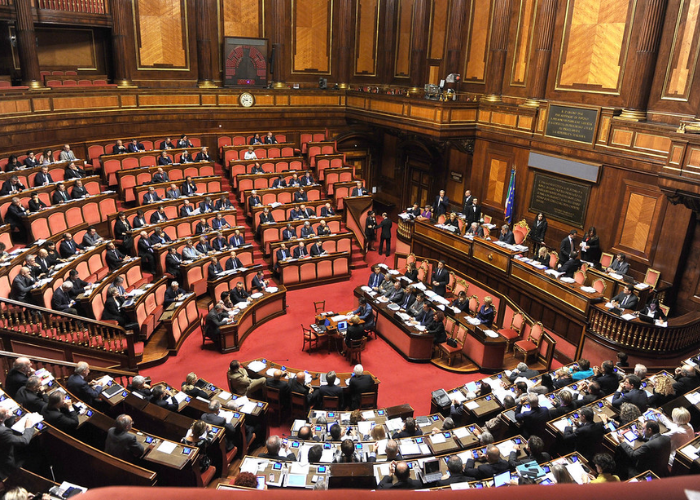Towards a future without waste: our proposals to the SenateExamination of the legislative proposals DDL 972, DDL 1145, and DDL 1167
- 26 November 2024
- Posted by: Competere
- Category: Senza categoria

We recently participated in a hearing at the Senate of the Republic: Proposals for Reducing Food Waste and Loss. We had the opportunity to contribute to the discussion on three draft bills aimed at reducing food waste and loss. This was a valuable occasion to present concrete and innovative solutions that not only mitigate waste but also promote responsible resource management across the entire food supply chain—from agriculture to the table.
WHY IS IT IMPORTANT?
Food waste is not just a moral issue tied to resource distribution or the abundance of a few at the expense of many. It is a challenge to food security, energy efficiency, and environmental sustainability. Reducing waste is not only an ethical duty but a necessary commitment to making food supply chains more efficient and lowering the environmental impact of human activity. Moreover, cutting waste results in economic savings for businesses and households.
It is important, however, to distinguish between food waste and food loss—two related but distinct challenges. Waste refers to food left unconsumed by end consumers, while loss occurs earlier in the supply chain, often due to suboptimal technologies and practices. Italy has extraordinary potential to lead in this area by applying advanced practices and technologies that contribute to sustainability.
For more information about the statistics on food waste, read here >>>
SOME PROPOSALS
Below are some of the key proposals. A full list, including a detailed analysis of the strengths and weaknesses of the draft bills, is available on the Senate website.
- Public-Private National Observatory:
Expand the scope of the existing Gadda Law to strengthen the observatory that monitors food waste and loss across the supply chain, involving both public and private entities. This observatory would provide valuable data to better understand critical issues and trends, enabling targeted and timely interventions to improve supply chain efficiency. - Fund for Education and Awareness Campaigns:
Establish a dedicated fund for anti-waste educational campaigns and school programs promoting the Mediterranean Diet and responsible consumption. Widespread awareness is crucial for fostering a culture of respect for food, starting with younger generations. - Fiscal Incentives for Innovation and Recovery:
Expand tax incentives for startups and small businesses that recover surplus and discarded food to create new products. - Technology and Refrigeration:
Encourage the adoption of advanced technologies, such as the Internet of Things (IoT) and Internet of Living Things (IoLT), to improve food preservation across the supply chain. Efficient refrigeration systems, especially in agriculture and logistics, can extend product shelf life, reduce food loss, and enhance access to fresh, nutritious foods. The meat supply chain is already at the forefront in this regard. - Collaboration and Best Practices:
Promote cross-sector collaboration to encourage the spread of best practices and ensure small producers and distributors can access new technologies. Improving cold chain management and adopting high standards throughout the supply chain could help minimize losses and create a more resilient food system.
Combining incentives and regulations with educational, technological, and collaborative approaches can make a difference. Raising awareness and engaging citizens and operators can position Italy as a model for sustainability and innovation.
Click on the image to download our proposals to the Senate (in Italian).

